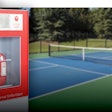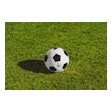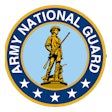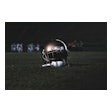Copyright 2018 Dayton Newspapers, Inc.
Dayton Daily News (Ohio)
There is something amazing about watching an Olympic athlete. They put all of their physical, mental and emotional energy into a lifetime of training, all for the chance to compete at the elite level. To see one suffer an injury is heartbreaking, but it may be the best time to talk about sports safety and the steps to take to protect your child athlete.
"While some sports have a higher risk for concussions, head injuries can happen anytime, anywhere. That's why it's important that all athletes get abase-line test every year, before the season starts," says Lora Scott, MD, medical director of sports medicine at Dayton Children's. "In order to say a concussion is better, you have to feel better, have a normal exam, and make sure your brain works. One of the best ways to check if your brain works is to do acomputer test that checks things like memory and reaction time. The baseline test is offered pre-injury, when a child's brain is working best for him or her."
To check if the brain works, Dayton Children's uses a concussion testing system called Neurocognitive Sports Computerized Cognitive Assessment Tool (CCAT) to help measure the cognitive function of child and teen athletes after suspected concussions or traumatic brain injuries (TBI). It's a simple test done on a computer, similar to playing a game.
In a baseline test, CCAT uses four simple tasks to measure brain function and the ability to process information. After an injury, testing can be repeated in clinic and compared with baseline test results. Testing after an injury is most helpful when athletes have a baseline, pre-injury test to use as a comparison. This helps doctors determine when brain function returns to normal.
Athletes who have a concussion without a baseline test can still be treated in a sports medicine clinic after an injury. However, determining when they are back to "normal" is more difficult because their tests can only be compared to the baseline test results of athletes of similar age and gender. "Each child is unique, therefore having a baseline for your child is extremely helpful in managing a concussion, should one occur. Comparing the pre-and post-concussion test scores can help determine when an athlete is ready to return to normal activities," says Dr. Scott.
Dayton Children's offers free baseline testing on awalk-in basis to children ages 10-21. Please call any outpatient testing center or the sports medicine clinic, at 937-641-3939, for more information such as hours or best times.
This look at a children's health or safety issue comes from Dayton Children's Hospital. Email: [email protected]
Read More of Today's AB Headlines
Subscribe to Our Daily E-Newsletter
Terms and Conditions Privacy Policy































